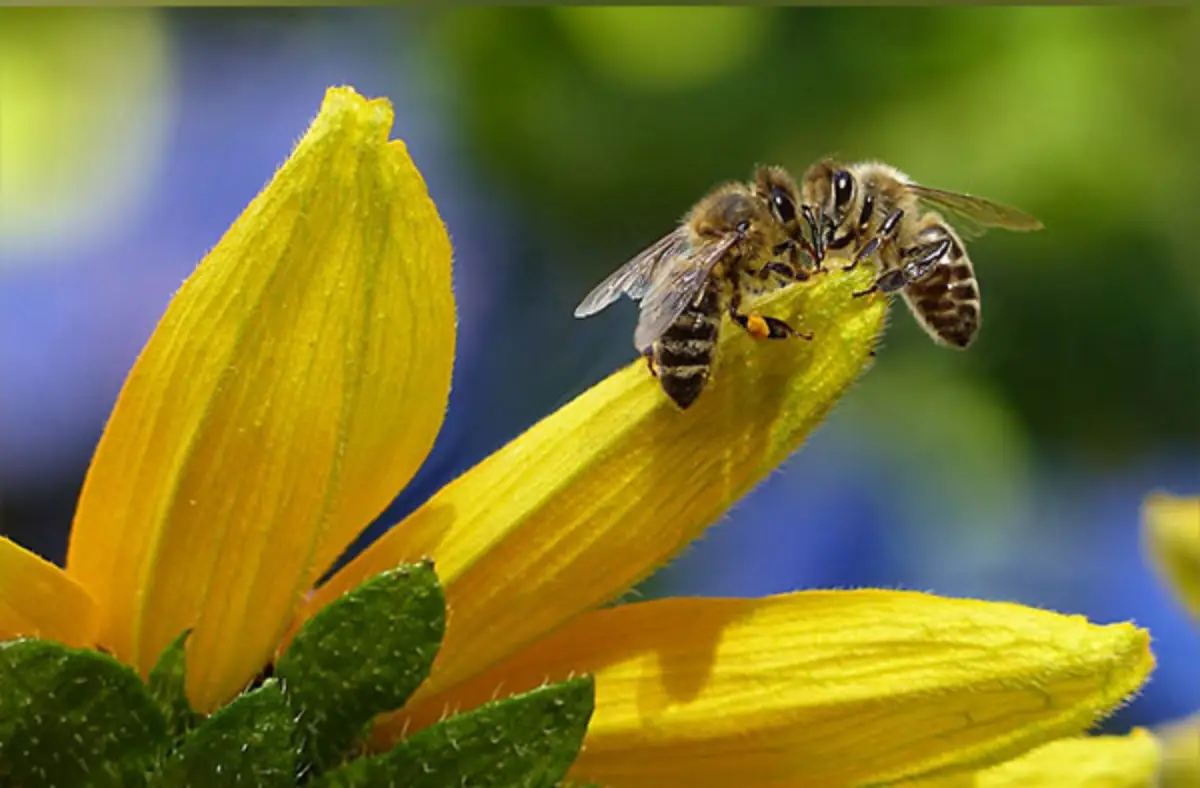
Air Pollution Makes It Difficult For Bees To Find Flowers
WASHINGTON, DC (ANI) – Air pollution hinders bees from finding flowers because it degrades the scent. A research team from the UK Centre for Ecology & Hydrology and the Universities of Birmingham, Reading, Surrey, and Southern Queensland discovered that ozone significantly alters the size and scent of floral odor plumes. This change reduces honeybees’ ability to recognize odors by up to 90% from just a few meters away.
Ground-level ozone forms when nitrogen oxide emissions from vehicles and industrial processes react with volatile organic compounds from vegetation in sunlight. Professor Christian Pfrang from the University of Birmingham said, “Our study provides robust evidence that ground-level ozone affects floral scent, causing pollinators to struggle in their crucial role in the environment, impacting food security.”
The findings suggest that ozone negatively impacts wildflower abundance and crop yields. Previous research has shown that ozone harms food production by damaging plant growth. Dr. Ben Langford, an atmospheric scientist at UKCEH, noted, “About 75% of our food crops and nearly 90% of wild flowering plants rely on animal pollination, mainly by insects. Understanding what harms pollination is crucial for preserving food, textiles, biofuels, and medicines.”
The researchers used a 30-meter wind tunnel at Surrey University to observe how odor plumes changed with ozone. They found that ozone reduced the size and altered the scent of the odor plumes. Honeybees trained to recognize specific odors struggled with the new, ozone-modified scents. Toward the center of plumes, 52% of honeybees recognized an odor at 6 meters, dropping to 38% at 12 meters. At the edges, only 32% recognized an odor at 6 meters, and just 10% at 12 meters. Ozone may also affect other odor-controlled behaviors, like attracting mates.
This research, funded by the Natural Environment Research Council, was published in Environmental Pollution. Professor Pfrang concluded, “Air pollution harms human health, biodiversity, and the climate, but now we see how it prevents bees and other pollinating insects from carrying out their key job. This should act as a wakeup call to act on air pollution and help safeguard food production and biodiversity for the future.”



